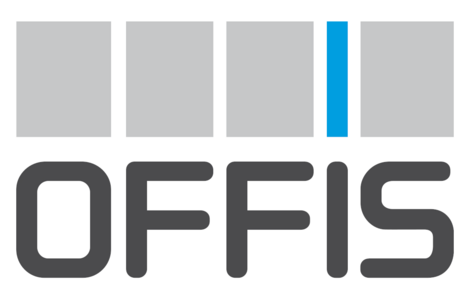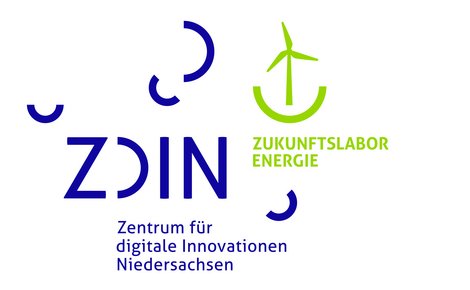Digitalisation
Digitalisation plays an important role in energy systems and for the energy transition as a whole. It facilitates collecting, processing and communicating energy-related data, as well as (remotely) controlling decentralised energy conversion systems and operating equipment for more efficient operational management that is largely automated and adapted to the highly dynamic, changing processes of energy management.
With Future Laboratory Energy of the Centre for Digital Innovation of Lower Saxony (ZDIN), OFFIS - Institute for Informatics and the Department of Solar Systems at the Institute for Solar Energy Research in Hamelin (ISFH) research institutions in Lower Saxony bundle their competences within the core areas dealing with digitalisation of the energy system.

Centre for Digital Innovation of Lower Saxony (ZDIN) - Future Laboratory Energy
In the future laboratories of the ZDIN, topic-specific university research, non-university research, industrial research and development, as well as the work of partners in the practical field are brought together. The joint focus is on digitalisation of those areas that are of essential importance to Lower Saxony - agriculture, energy, society and work, health care, mobility and production. Cooperation within and with the future laboratories is open to all actors from science, business and society.
Ensuring integrated supply. Implementing the energy revolution, attaining climate goals.
In the Future Laboratory Energy digitalised energy supply is researched and secured. Central aspects of the Future Laboratory Energy are machine learning and big data analysis in energy systems, cyber-resilient energy systems and information security, integration based on information and communication technology of new actors in system planning and implementation planning of decentralised energy systems, as well as interoperability and standardised processes of multimodal energy systems.
Want to learn more about the Centre for Digital Innovation of Lower Saxony (ZDIN) - Future Laboratory Energy?
Fore more information, please visit the ZDIN Future Laboratory's website .
OFFIS – Institute for Informatics - Energy Research and Development Area
Energy, health, production and transport - these are the four application-oriented research and development areas of OFFIS. These areas are all characterised by knowledge from different fields of technology.
How can energy supply be shaped in such a way with new information technology so that the uncontrollable and generally not needs-based energy from renewable sources, that is fed into the grid, supports a reliable supply? How, for example, can the large number of highly efficient cogeneration plants become a reliable component of energy management? Or how can the continuously rising energy consumption of IT itself be reduced?
For many years OFFIS has been researching and developing ICT-based concepts and prototypical systems for energy management and energy efficiency. In the foreground of all technological work is the contribution towards social and economic challenges in the area of future energy. In these interdisciplinary issues OFFIS makes use of a network of partners from other disciplines, as well as long-term cooperation agreements with manufacturers and users.

Institute for Solar Energy Research in Hamelin (ISFH) - Department of Solar Systems
The Department of Solar Systems at the ISFH is conducting research on system integration of renewable energy - from components to applications in buildings and neighbourhoods. Digitalisation of energy system technology allows for new, innovative concepts for efficient coupling of the sectors electricity, heat and mobility. The coupling and interaction of various intelligent components is a key focus in the development of next generation building energy systems.
The ISFH conducts application-oriented joint research in close cooperation with component manufacturers and regional energy suppliers. The objective is a cost- and energy-efficient energy supply with a high regenerative share that optimally utilises the regional renewable potential. The work includes energy and plant monitoring for function and yield control in the field, the evaluation of systems under defined dynamic framework conditions in the laboratory, as well as energy system modelling based on measured data. On this basis intelligent control systems can be developed and components and systems can be optimally designed.

Want to learn more about the Department of Solar Systems at the ISFH?
For more information, please visit the ISFH website.
Information on the efzn lead project SiNED
Click here to find more information on the efzn lead project SiNED, which deals with system services for secure electricity grids in the on-on-going energy transition and its supplementary digital transformation.
